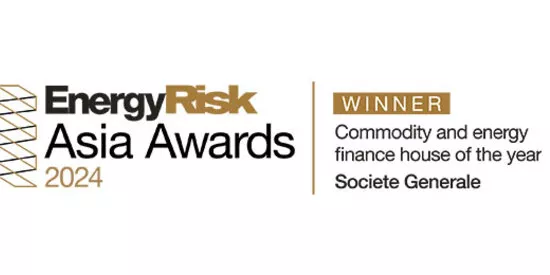
Greenwashing or green-enabling?
Alternative data can help investors capture broader and more timely insight into ESG performance
By Puneet Singh, Head of quantitative research, Asia-Pacific, Societe Generale
ESG is becoming the dominant investment theme of our times, but gathering and interpreting the data required to apply environmental, social and governance principles to portfolios remain challenging. Emerging technology can help, allowing investors to capture broader and more timely information via technologies like natural language processing and machine learning. Harnessing alternative data sources like newsflow and satellite images can enable investors to make better-informed decisions about ESG factors.
Investors are increasingly focused on the ESG of the companies they own and finance, reflecting a seismic shift towards responsible investing. By 2020, more than 2,750 institutions with over US$100 trillion of assets under management had signed the UN Principles of Responsible Investment. And ESG funds proved to be resilient amid last year’s exceptional market volatility, often outperforming broader indices.
One key driver of this growing ESG focus has been moves by stock exchanges and listing authorities to mandate the disclosure of companies’ ESG performance. ESG risks represent a significant financial risk which, if fully disclosed, can provide useful insights into a company’s overall exposure and risk management approach – even for non-ESG funds.
But while investors recognize the value of monitoring ESG risk, they also have to balance this with the performance of their funds. And a major challenge to fulfilling this task is the absence of a standardized system for classifying and comparing ESG performance, which makes assessing potential investments difficult.
More reliable data would help investors distinguish between investable information and “greenwashing”. Not only are there no international accounting standards for ESG data, but few other criteria are available that are universally trusted. To fill this vacuum, many investors have worked in-house to create their own methodologies for assessing companies’ ESG credentials.
Finding the figures
Earlier approaches used negative or positive screening and value judgments to improve investment decisions. But as ESG approaches become mainstream, the need for reliable data is ever more pressing. Amid the proliferation of approaches, some basic principles should apply. To be useable, data clearly need to be accurate; companies need to disclose the required numbers; and the data should ideally be audited independently to verify their soundness.
To this end, a number of industry bodies are working on measures to standardise ESG data. The Network for Greening the Financial System (NGFS), established in 2017, now has 83 members globally, mainly central banks and regulators. These institutions are working together to promote best practice in environmental and climate risk management. The CFA Institute has also embarked on a project to build an operating model that will support sustainable investing.
Part of the challenge is the range of phenomena ESG reporting covers: from tracking the management of climate-related risks within a business to monitoring a company’s gender diversity. For issuers, knowing what investors are looking for can be instrumental in reducing their cost of capital in future.
Seeking alternatives
Alternative sources of data can help investors capture broader and more timely insight into an issuer’s ESG performance, though. New technologies offer a variety of solutions. For example, natural language processing (NLP) and machine learning can be used to parse sustainability reports to identify and analyze ESG-related information.
Company sustainability reports come out once a year and the text in them tends to outweigh the data – often by a considerable margin. It is time-consuming for a person to read through a whole ESG report and their understanding of it will be subjective. But NLP and machine learning can automatically derive key information from the text using a consistent methodology based on tailored parameters.
This “enhanced” newsflow analysis process can provide sentiment metrics, enabling investors to identify potential critical issues for risk mitigation or even investment exclusion in a more effective fashion; similarly, the same analysis could potentially identify new projects or material developments of a company which will potentially uplift its ESG ratings on the investors’ radar. With the intelligence gathered, investors can sometimes already act ahead of a company announcement.
Buy or build
It’s worth noting that buyside firms spent US$1.1 billion on alternative data in 2019 and US$1.7 billion in 2020. When deciding how to harness this potential, market participants face a “build or buy” choice: while regulators and vendors are still working on what metrics to use, investors and intermediaries are creating their own systems.
The twin crises of climate change and the Covid-19 pandemic have added urgency to the role finance can play in delivering a more sustainable future. Markets’ ability to channel capital towards addressing climate change and other pressing needs depends on high-quality information, making alternative data a potentially indispensable investment tool for the future.
(The article was first published on The Asset)

China finds its feet: economic stability and gradual recovery in 2025
By Wei Yao, Head of Research and Chief Economist for APAC at Societe Generale.

Best of both worlds: How social ABS delivers low-cost financing and a positive impact
By Eugene Kim, Head of Securitisation and Fund Finance for Asia Pacific at Societe Generale.

Data centres are taking Asia-Pacific by storm
By Marie Vinnell, Chief Country Officer for Australia and Eugene Tan, Head of Technology, Media and Telecoms for Asia...

Societe Generale wins 10 awards in sustainable finance
Global Finance has announced the winners of its fifth annual Sustainable Finance Awards for 2025 and the selections for...



